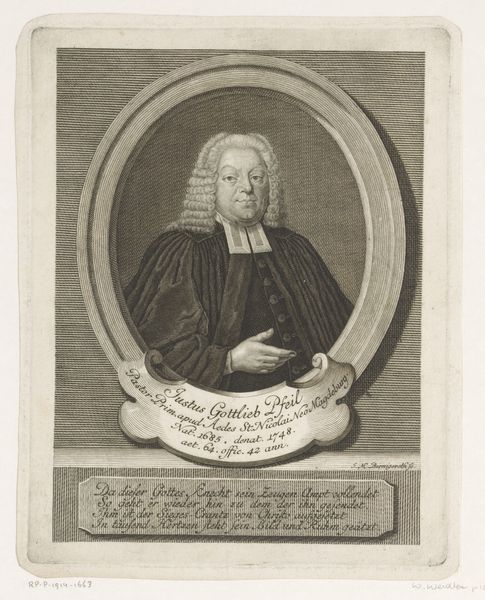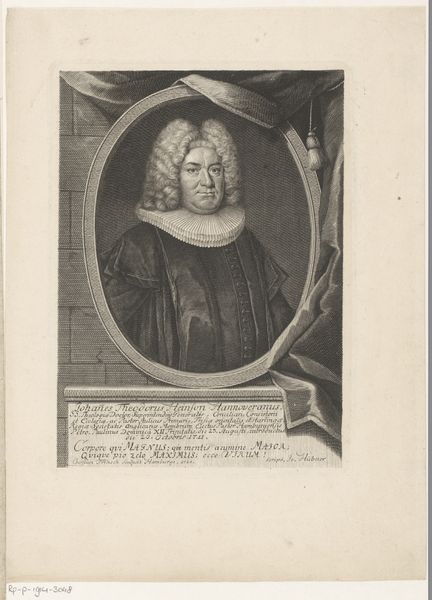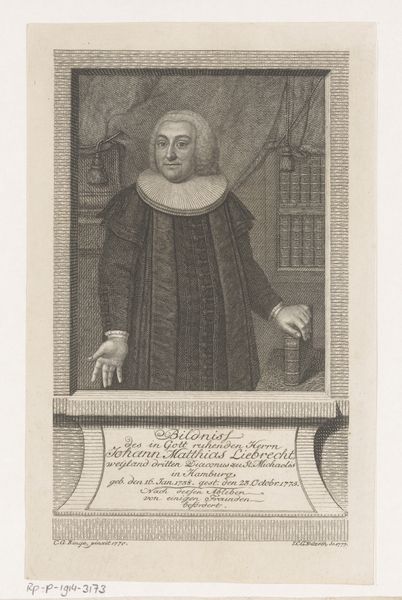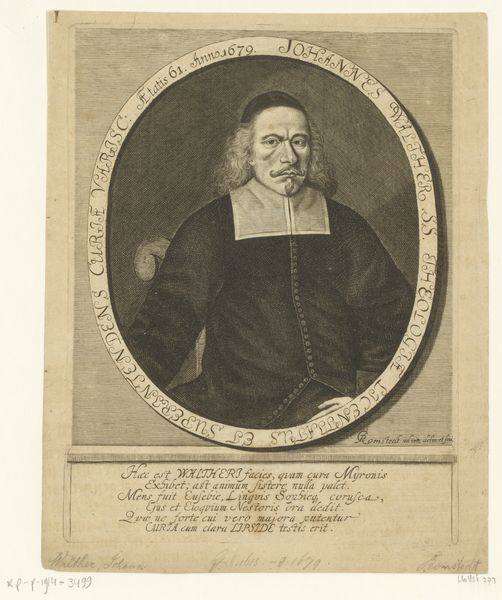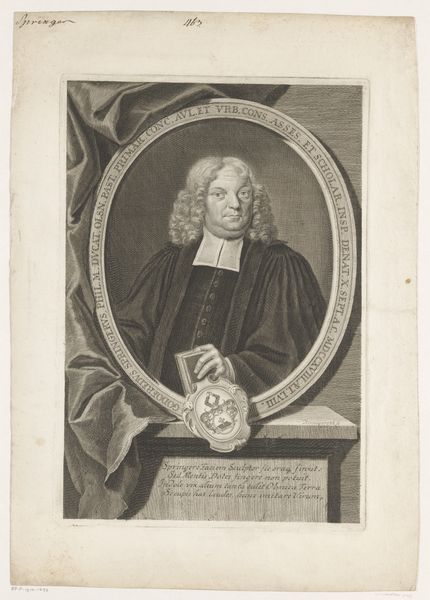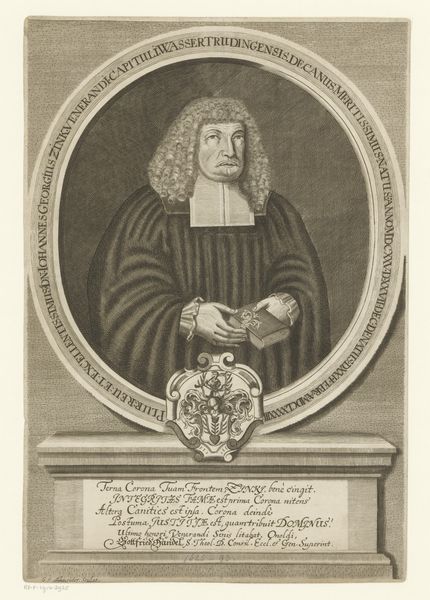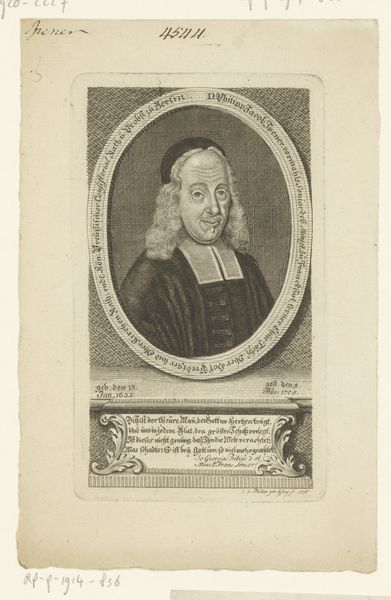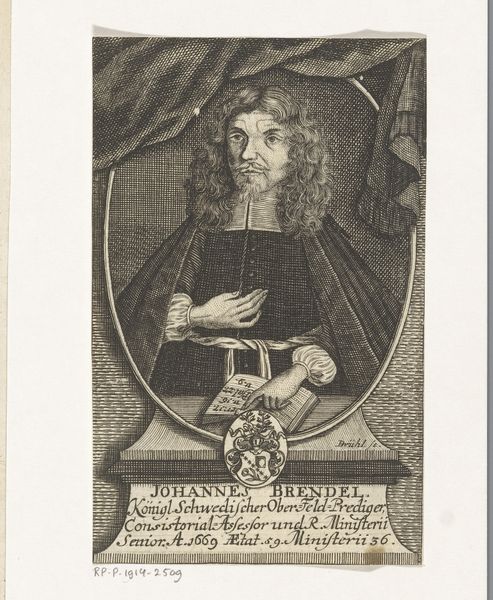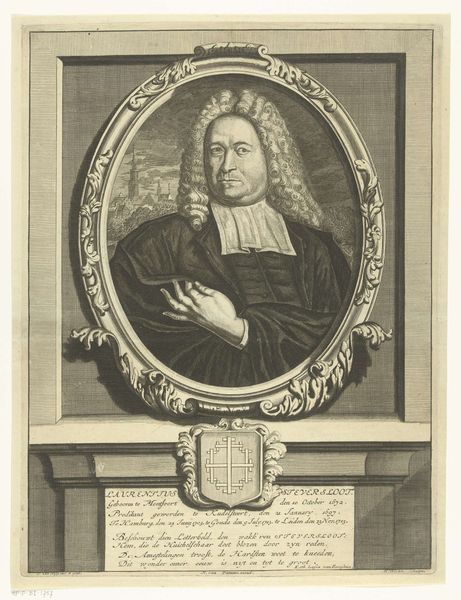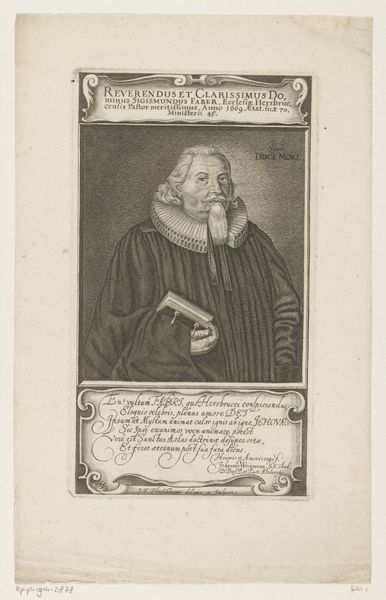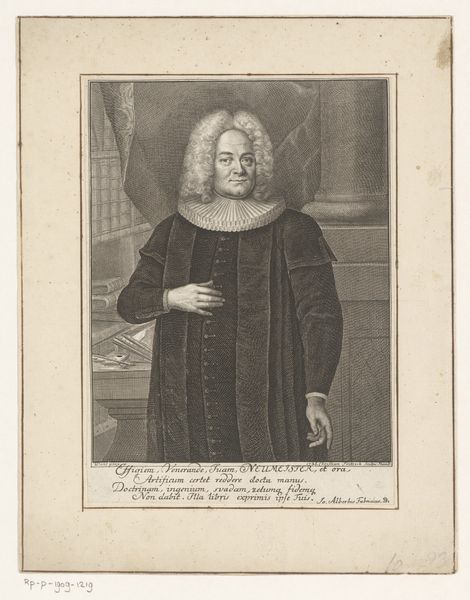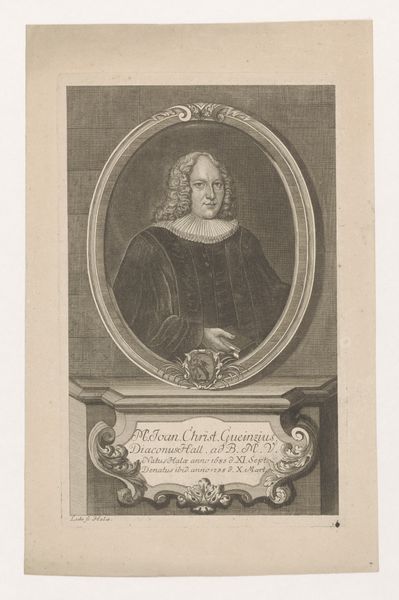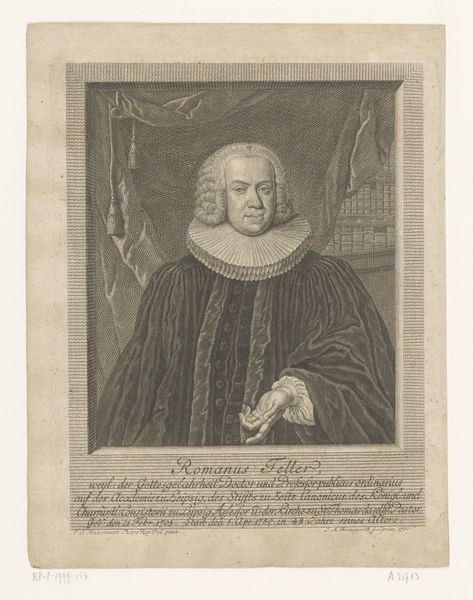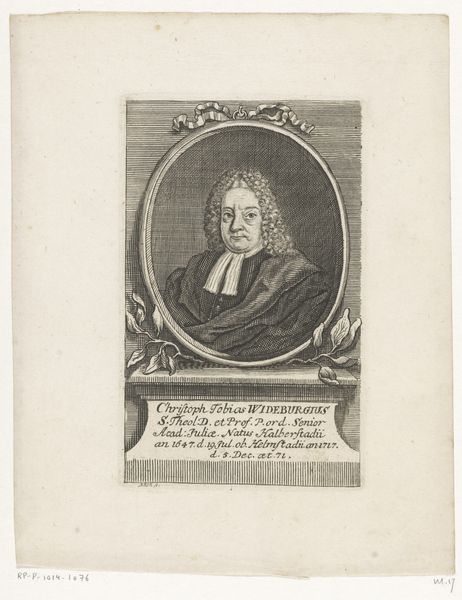
print, engraving
#
portrait
#
baroque
# print
#
figuration
#
history-painting
#
engraving
Dimensions: height 180 mm, width 139 mm
Copyright: Rijks Museum: Open Domain
Editor: So, here we have "Portret van Johann Avenarius," a print made sometime between 1723 and 1763, currently residing in the Rijksmuseum. It's attributed to Johann Benjamin Brühl. What strikes me most is the formal, almost theatrical presentation. It feels like he's observing *us*. What do you see in this piece, beyond the surface representation? Curator: Oh, that feeling of being observed is spot-on. It whispers of Baroque sensibilities, doesn’t it? It's so meticulously crafted. I can almost smell the ink! To me, this portrait encapsulates the spirit of its time, with that elaborate wig acting as a visual declaration of status. The lettering beneath... Do you see how that adds another layer, a eulogy in tight script? Editor: Yes, it’s beautiful. I imagine it was important to identify and laud his position, wasn't it? A pastor, yes? A man of importance and knowledge, and I believe his family name on a coat-of-arms or something of the sort. Curator: Absolutely. The positioning within that oval cartouche… Almost like he is behind a proscenium. The artist seems less concerned with the ‘real’ Johann and more determined to portray him as an *idea*, an embodiment of learned authority. What does it make you feel? I always find portraits are asking, beyond just “who is this?” What are they saying? Editor: I suppose, for me, that this represents not just a man but the weight of expectations and status of this time in history. The gaze certainly gives the impression of gravitas. Curator: Indeed, indeed. It all becomes about the lens we bring, doesn’t it? Considering the culture. I am seeing so many of my reflections that I think that might be all about *my* projection rather than old Johann over here! Editor: That's an interesting takeaway, actually, applying one's lens in an appreciation and consideration of work beyond its historical relevance. Curator: And isn’t that what makes art history eternally fascinating?
Comments
No comments
Be the first to comment and join the conversation on the ultimate creative platform.
